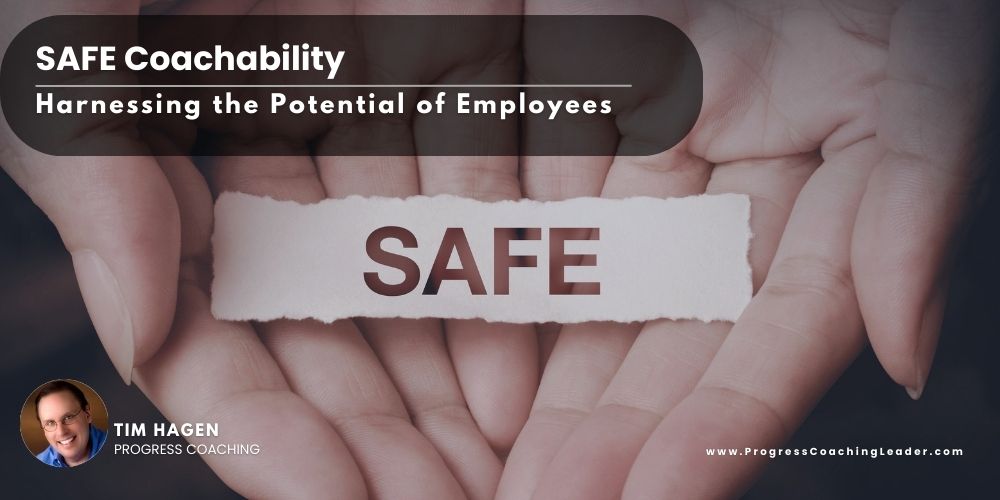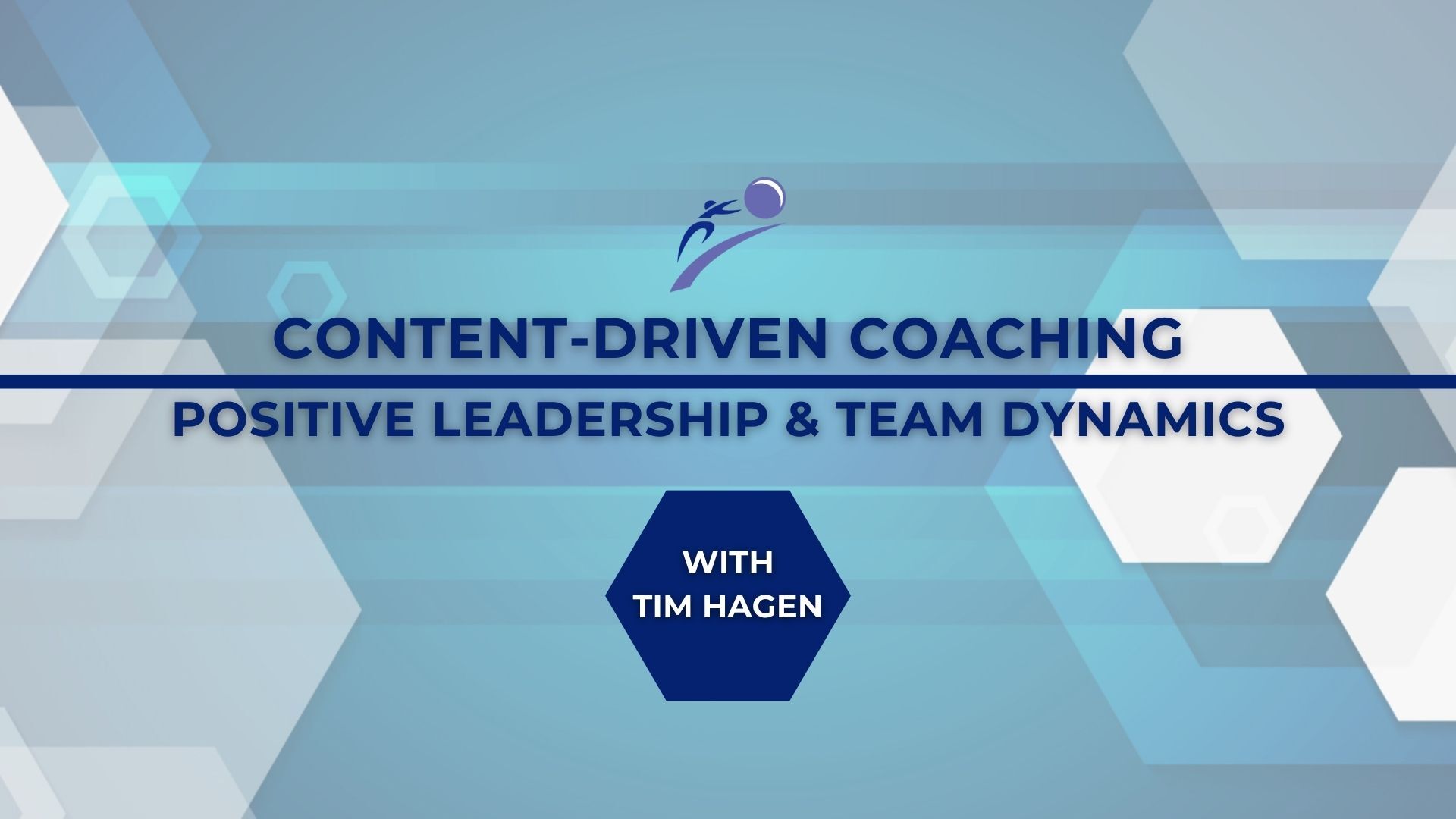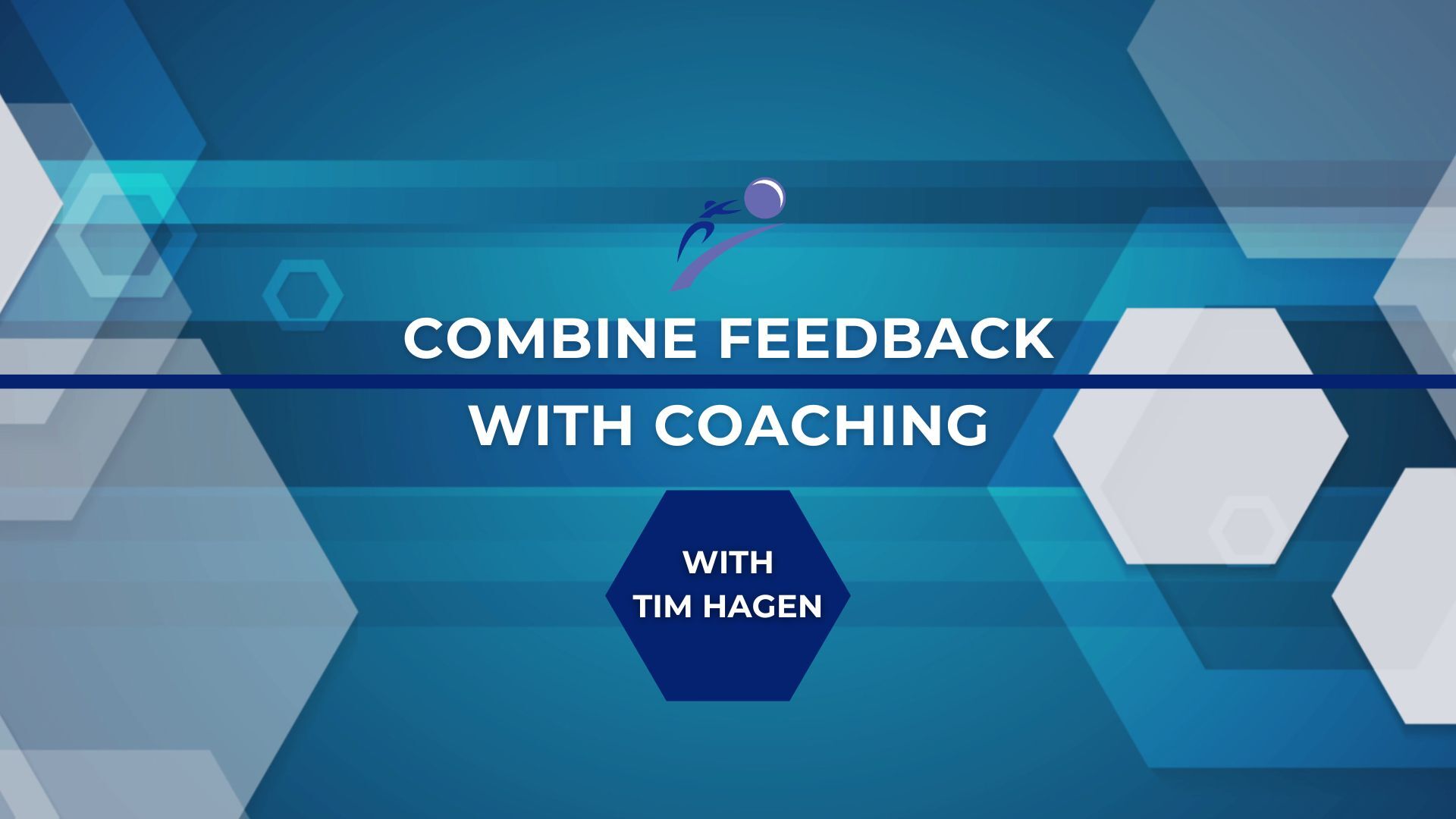Harnessing the Potential of Employees through SAFE Coachability
What if the way we've been thinking about coaching in the workplace is all wrong? Instead of viewing coaching as a corrective measure, what if we saw it as an investment in someone's growth?
That's the shift we're exploring today, challenging the common narrative that coaching is about 'fixing' individuals. We're inviting you to think about 'SAFE' coachability - an acronym encompassing Self-awareness, Attitude, Feedback, and Effort. Drawing on insights from books like "Insight" by Tasha Eurich and "Grit" by Angela Duckworth, we delve into the ways self-awareness, positivity, feedback, and effort interact to enhance an individual's performance. We also discuss the challenges of fostering these attributes in a workplace where many people lack self-awareness or a positive attitude.
Whether you're a leader or a team member, join us as we rethink how to best foster an environment of safe coachability, paving the way for growth, improvement, and unlocked potential.
One of the greatest opportunities organizations have is coachability. For years, we've talked about coaching employees and creating a positive relationship with being coached. I just talked to a company the other day that said they viewed coaching as something they had to do when someone's underperforming. That has a punitive tone.
Coaching is really about an investment in someone. Taking them from point A to point B to point C, whether it's constructive or potentially even opportunistic in nature. It's not always fixing a problem.
The #1 thing that we can do is to create a safe place for coachability. Think about the acronym SAFE.
Self-awareness
Attitude
Feedback
Effort
When you think about Self-awareness, most people lack self-awareness. Again, I've cited the study from Tasha Eurich in her book, Insight, a New York Times Bestseller: 95% of the people in her study said they were highly self-aware, yet when she tested them, only 10% were. Meaning, 8.5 out of every 10 people in a company lack self-awareness. If you lack self-awareness, you cannot improve performance to the optimal level. You just can't because you won't see what you need or have an opportunity to improve.
Number two, Attitude. Most people don't practice a positive attitude. The Gallup organization just came out with another study that says roughly 70% of the people in the workplace today are neutral or actively disengaged in their workplace, meaning negative. Only 29% to 30% are positive, which makes it really tough. If I'm a leader, and 8.5 out of 10 people lack self-awareness, and 7 out of 10 are neutral, just doing their job, or have a negative attitude, that's a significant challenge for leaders today.
Number three, Feedback. We don't do something that is so easy to do, and that is to teach people the value of feedback. Teach people how to create a positive relationship with feedback. Something interesting happens when we give somebody constructive feedback: people typically go into fight or flight mode. They typically go into this mode based on one fundamental fact of agreement or disagreement. If I disagree with the feedback, I dismiss the feedback. But we also have to realize if I go up to somebody and say, "John, I'm really kind of concerned, you seem a little bit arduous or potentially even a bit negative," and his first reaction is, "Oh my gosh, Tim's attacking me. I'm going to dismiss that feedback." What he lost sight of is that's a perception. See, feedback is not always about accuracy. It's also about woven into the element of providing someone with a perception.
What if everybody in your company sought feedback? What if everybody practiced professional reception? Wouldn't the workplace improve?
Last is Effort. I just love this book, Grit by Angela Duckworth. I think it's brilliant. She talks about the cadence of practice and effort. It really mirrors what we teach in Progress Coaching, which is that people change slowly. They change first with effort, then progress where they have targeted, attainable things that they're improving, and then we move into this direction of predictable, sustainable results.
With that being said, how often do we facilitate effort around feedback? How often do we facilitate effort around maintaining a positive attitude? How often do we, as leaders, facilitate guidance and insight and maybe even introspection and self-awareness?
What we have to do is create safe coachability. If people become more self-aware, their attitudes will improve. If people's attitudes improve, their relationship with feedback will improve. If they start to seek and accept feedback and develop a positive relationship with feedback, that will be a result of effort. So, think about creating safe coachability.
If you are looking for a way to strengthen your organization, ask about our Coaching Champion Certification program, where we take everyday employees and use everyday conversations to strengthen the organization's culture. Coaching Champions inspire and motivate others and professionally challenge those who struggle with positivity.
Get More info Here: click here





